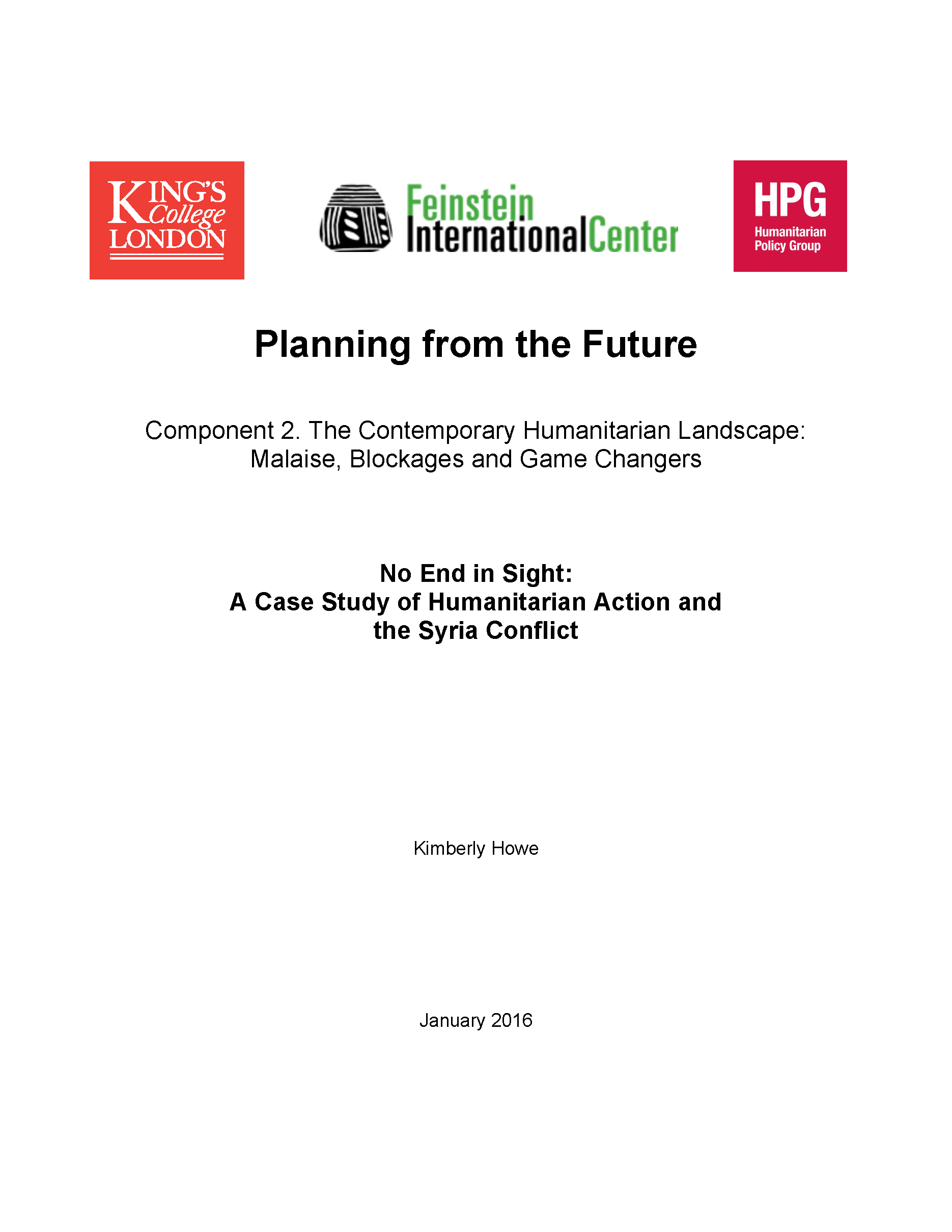The scale of the Syrian conflict and resulting humanitarian need constitute one of the largest crises of our time. This case study analyzes contemporary humanitarian action in Syria, cross-border operations, and the refugee response in neighboring countries. By systematically examining the blockages to humanitarian action, and potential game changers resulting from the Syria crisis, several key findings emerge:
- Despite enormous financial resources, the humanitarian response has been highly politicized. Donor mandates, fears, and preferences have frequently taken precedence over humanitarian objectives
- Humanitarian leadership has been weak and divided with significant distrust within and between organizations, creating a deeply fractured response
- Meaningful action to protect civilians remains elusive. Efforts have failed to protect those most in need: the besieged, civilians under ISIS control, and Palestinian refugees living in Syria
- Some positive developments have emerged including innovations in response modalities, and effective initiatives by local and grass roots organizations
This study provides an insight into the implications for the future of humanitarianism—in Syria and beyond. It is one of four case studies developed for the “Planning from the Future” study, conducted in collaboration with Kings College London and the Humanitarian Policy Group.







